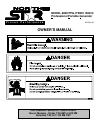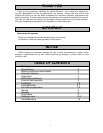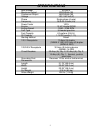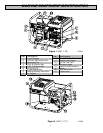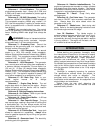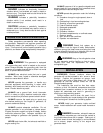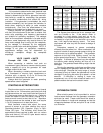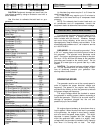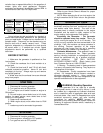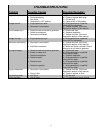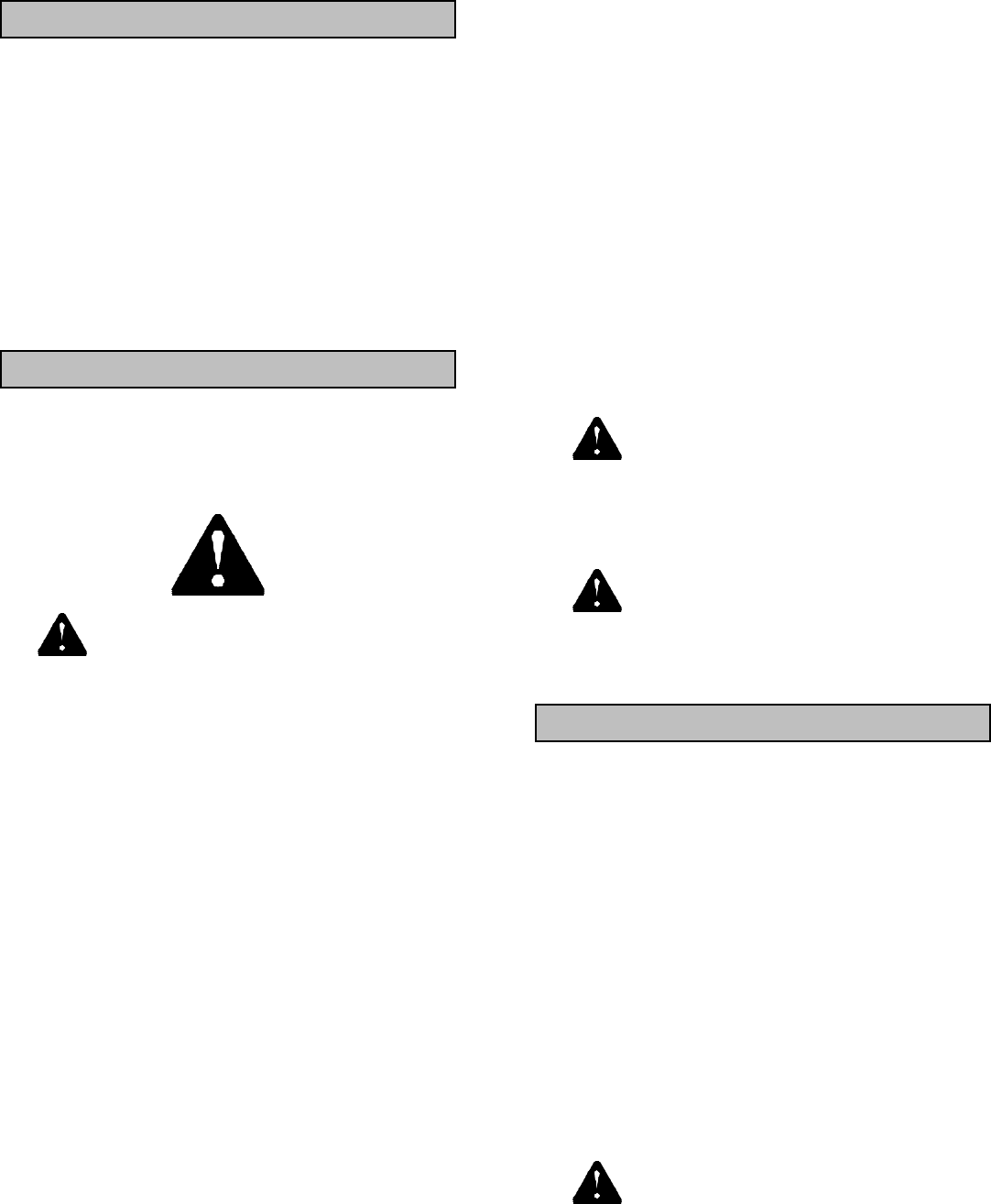
5
ANSI SAFETY DEFINITIONS
DANGER indicates an imminently hazardous
situation which, if not avoided, will result in death or
serious injury. This signal word is to be limited to the
most extreme situations.
WARNING indicates a potentially hazardous
situation which, if not avoided, could result in a
death or serious i nj ury.
CAUTION indicates a potentially hazardous
situation, which if not avoided, may result in minor or
moderate injury. It may also be used to alert against
unsafe practices.
RULES FOR SAFE OPERATIONS
Safety precautions are essential when operating
this generator. Respectful and cautious operation will
considerably lessen the possibilities of a personal
injury. This manual will warn of specific personal injury
potential, and these will be designated by the symbol:
WARNING This generator is equipped
with a grounding post, which is located on the control
panel. Always complete the grounding path from the
generator to a copper pipe/rod that is driven into moist
earth, to prevent electrical shock.
ALWAYS use electrical cords that are in good
condition. Worn, bare, frayed or otherwise damaged
cords can cause electric shock.
NEVER operate the generator, or handle any
electrical equipment while standing in water, while
barefoot, while hands are wet or while in the rain or
snow. Electric shock may result.
ALWAYS use a ground fault circuit interrupter
(GFCI) in damp or highly electrical conductive areas
and on construction job-sites to prevent electric shock.
ALWAYS remove the spark plug or spark plug
wire before working on the engine or generator, to
prevent accidental starting.
ALWAYS provide adequate ventilation. Do not
operate generator in any enclosed or narrow space.
Engines consume oxygen and give off deadly carbon
monoxide poisonous gas. Improper ventilation will
cause damage to generator and possible injury to
people.
NEVER touch hot muffler, hot exhaust manifold or
engine cooling fins.
ALWAYS remove all oil or gasoline deposits and
accumulated dirt from generator and immediate area.
Keep generator head and engine clean.
NEVER operate the generator under the following
conditions:
A. Excessive change in engine speed, slow or
fast.
B. Overheating in load connecting devices.
C. Sparking or arcs from generator.
D. Loss of electrical output.
E. Damaged receptacles.
F. Engine misfire.
G. Excessive vibration.
H. Enclosed compartments, or confined areas.
I. Flame or smoke.
J. Rain, snow or wet conditions.
K. Operator non-attendance.
WARNING Check fuel system on a
regular basis. Look for signs of leaks, deterioration,
chafed or spongy fuel hose, loose or missing fuel hose
clamps, damaged fuel tank or a defective fuel shut-off
valve. Correct any defects before operation.
WARNING Keep a fire extinguisher close
by your generator and be familiar on how to use it.
Consult your local fire department for correct
extinguisher type.
INSTALLATION
OUTDOORS: Choose locations where the
generator will not be exposed to rain, snow or direct
sunlight. Position the generator on secure, level
ground so it will not tip or slide down a hill. Place the
generator so that the exhaust fumes will not be
directed towards people.
The installation site must be free from water,
moisture, or dust. All electrical components should be
protected from excessive moisture or the insulation
system will deteriorate and result in grounding or
shorting out the generating system.
Foreign matters, such as dust, dirt, sand, lint, or
abrasive materials can cause damage to the generator
head and engine if allowed into its cooling system.
NEVER install your generator inside confined
areas. Inside installation can cause health hazards or
death.
DANGER Remember, exhaust fumes are
deadly carbon monoxide gas, and must be vented to
the outside where there are no people. Cooling air of
sufficient amounts must be brought in and exhausted
out to ensure proper cooling of the engine and
generator head.



